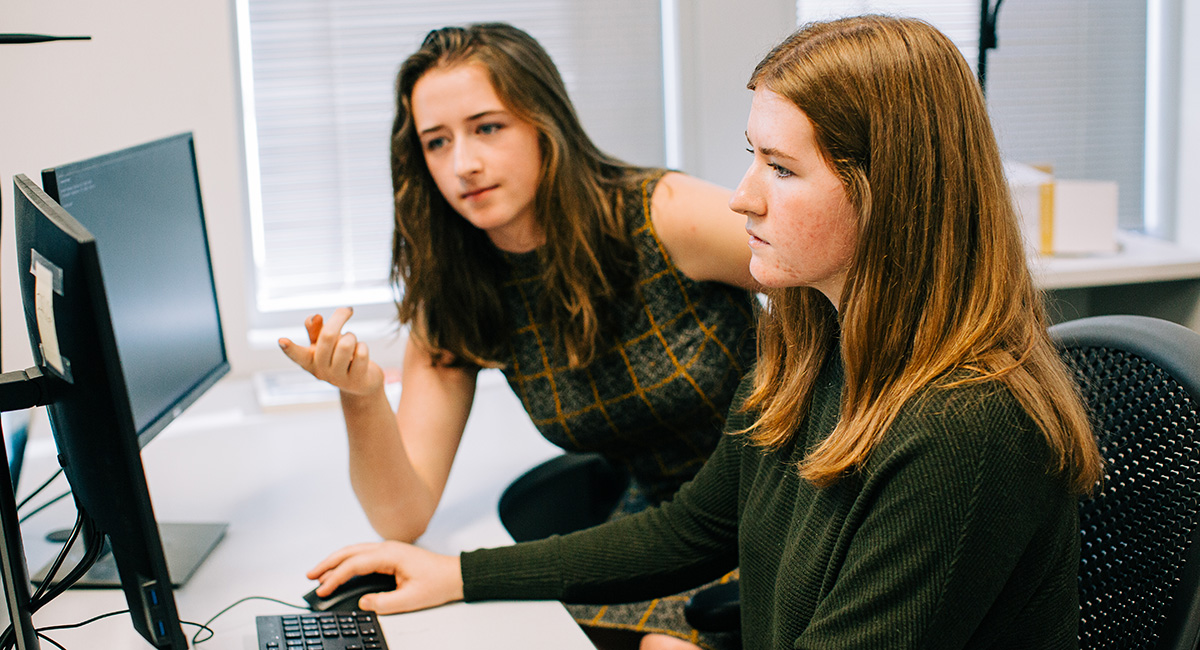 If you ask Emma McBride about the role that computers and technology have played in her life, she can’t answer fast enough.
If you ask Emma McBride about the role that computers and technology have played in her life, she can’t answer fast enough.
“I grew up doing robotics through elementary, middle and high school,” says the senior South Carolina Honors College computer science major. “My dad was into technology, and so he would always be coming home with different computer parts, and he’d bring me and my sisters up to the office and be like, ‘All right, guys, look at this, what does this do?’”
For Madeleine McBride, sophomore Honors computer information systems student, her fascination with all things cyber developed upon her arrival to the University of South Carolina. Read the rest of the article here.